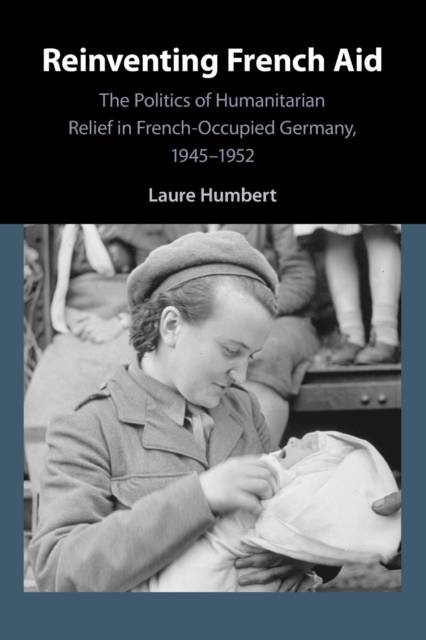
Door een staking bij bpost kan je online bestelling op dit moment iets langer onderweg zijn dan voorzien. Dringend iets nodig? Onze winkels ontvangen jou met open armen!
- Afhalen na 1 uur in een winkel met voorraad
- Gratis thuislevering in België vanaf € 30
- Ruim aanbod met 7 miljoen producten
Door een staking bij bpost kan je online bestelling op dit moment iets langer onderweg zijn dan voorzien. Dringend iets nodig? Onze winkels ontvangen jou met open armen!
- Afhalen na 1 uur in een winkel met voorraad
- Gratis thuislevering in België vanaf € 30
- Ruim aanbod met 7 miljoen producten
Zoeken
Reinventing French Aid
The Politics of Humanitarian Relief in French-Occupied Germany, 1945–1952
Laure Humbert
Paperback | Engels
€ 64,95
+ 129 punten
Omschrijving
Laure Humbert explores how humanitarian aid in occupied Germany was influenced by French politics of national recovery and Cold War rivalries. She examines the everyday encounters between French officials, members of new international organizations, relief workers, defeated Germans and Displaced Persons, who remained in the territory of the French zone prior to their repatriation or emigration. By rendering relief workers and Displaced Persons visible, she sheds lights on their role in shaping relief practices and addresses the neglected issue of the gendering of rehabilitation. In doing so, Humbert highlights different cultures of rehabilitation, in part rooted in pre-war ideas about 'overcoming' poverty and war-induced injuries and, crucially, she unearths the active and bottom-up nature of the restoration of France's prestige. Not only were relief workers concerned about the image of France circulating in DP camps, but they also drew DP artists into the orbit of French cultural diplomacy in Germany.
Specificaties
Betrokkenen
- Auteur(s):
- Uitgeverij:
Inhoud
- Aantal bladzijden:
- 371
- Taal:
- Engels
Eigenschappen
- Productcode (EAN):
- 9781108932776
- Verschijningsdatum:
- 23/03/2023
- Uitvoering:
- Paperback
- Formaat:
- Trade paperback (VS)
- Afmetingen:
- 152 mm x 229 mm
- Gewicht:
- 494 g

Alleen bij Standaard Boekhandel
+ 129 punten op je klantenkaart van Standaard Boekhandel
Beoordelingen
We publiceren alleen reviews die voldoen aan de voorwaarden voor reviews. Bekijk onze voorwaarden voor reviews.











